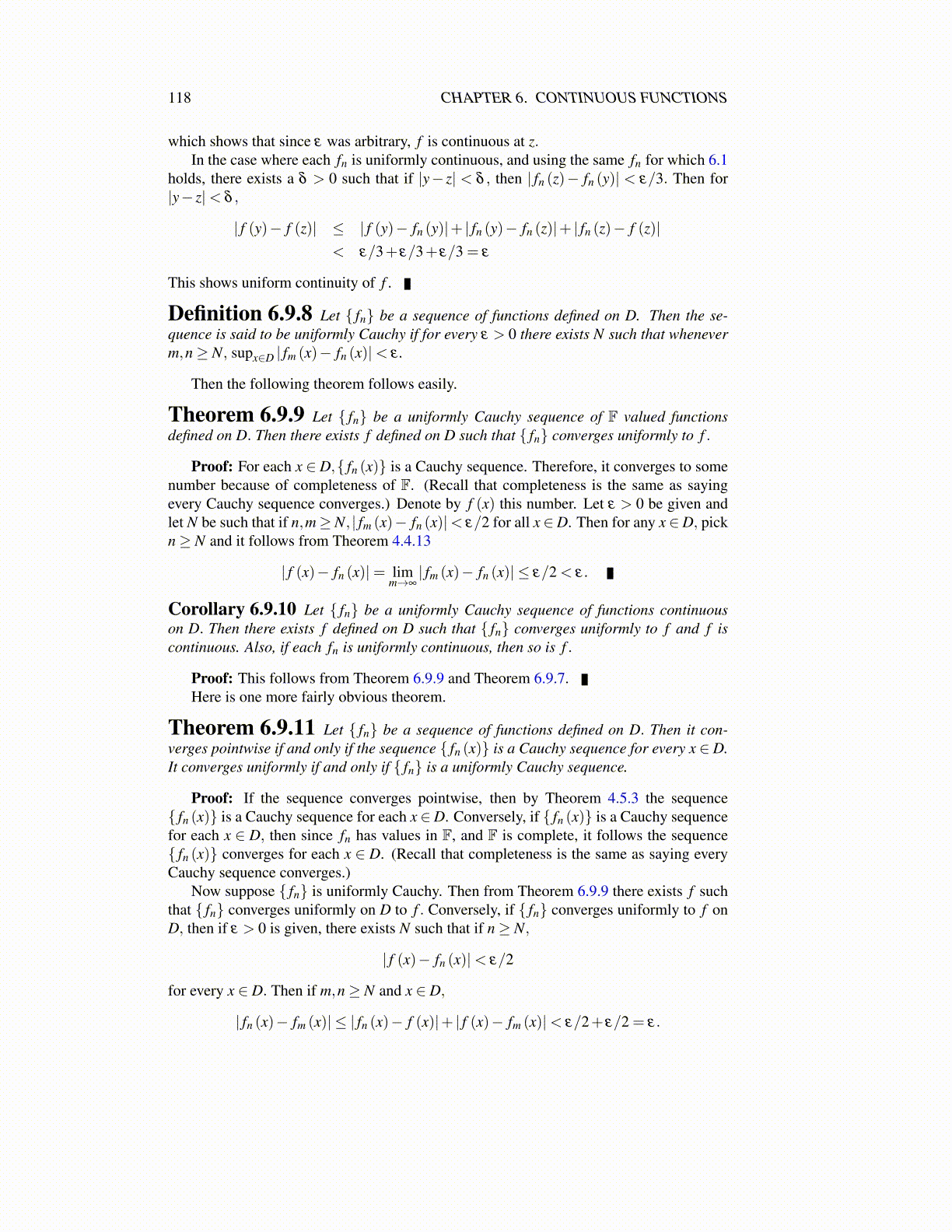
118 CHAPTER 6. CONTINUOUS FUNCTIONS
6.10 Weierstrass ApproximationIt turns out that if f is a continuous real valued function defined on an interval, [a,b] thenthere exists a sequence of polynomials, {pn} such that the sequence converges uniformlyto f on [a,b]. I will first show this is true for the interval [0,1] and then verify it is true onany closed and bounded interval. First here is a little lemma which is interesting for its ownsake in probability. It is actually an estimate for the variance of a binomial distribution.
Lemma 6.10.1 The following estimate holds for x ∈ [0,1] and m≥ 2.
m
∑k=0
(mk
)(k−mx)2 xk (1− x)m−k ≤ 1
4m
Proof: Here are some observations. ∑mk=0(m
k
)kxk (1− x)m−k =
mxm
∑k=1
(m−1)!(k−1)!((m−1)− (k−1))!
xk−1 (1− x)(m−1)−(k−1)
= mxm−1
∑k=0
(m−1
k
)xk (1− x)m−1−k = mx
m
∑k=0
(mk
)k (k−1)xk (1− x)m−k
= m(m−1)x2m
∑k=2
(m−2)!(k−2)!(m−2− (k−2))!
xk−2 (1− x)(m−2)−(k−2)
= m(m−1)x2m−2
∑k=0
(m−2
k
)xk (1− x)(m−2)−k = m(m−1)x2
Now (k−mx)2 = k2−2kmx+m2x2 = k (k−1)+ k (1−2mx)+m2x2. From the above andthe binomial theorem, ∑
mk=0(m
k
)(k−mx)2 xk (1− x)m−k =
m
∑k=0
(mk
)k (k−1)xk (1− x)m−k +(1−2mx)
m
∑k=0
(mk
)kxk (1− x)m−k
+m2x2m
∑k=0
(mk
)xk (1− x)m−k = m(m−1)x2 +(1−2mx)mx+m2x2
= mx(1− x)≤ m14
Now let f be a continuous function defined on [0,1] . Let pn be the polynomial definedby
pn (x)≡n
∑k=0
(nk
)f(
kn
)xk (1− x)n−k . (6.5)
Theorem 6.10.2 The sequence of polynomials in 6.5 converges uniformly to f on[0,1]. These polynomials are called the Bernstein polynomials.